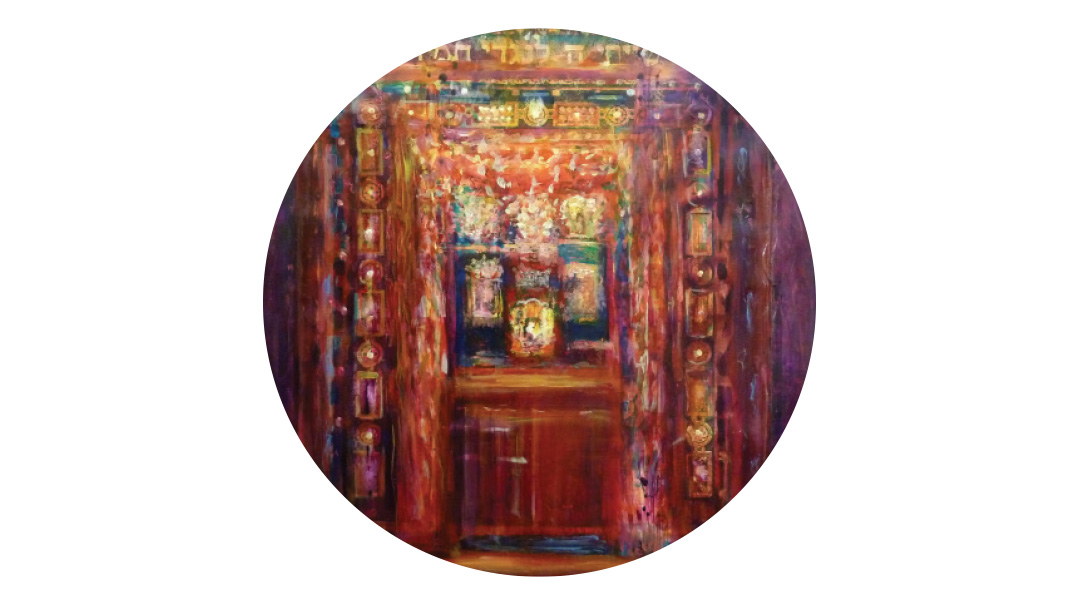Respect and Connect


See the good and respect will come
Everyone wants to be respected — but earning it is a different matter. Ben Zoma teaches his familiar and timeless truth (Avos 4:1): “Who is mechubad, a respectable person? One who respects others.”
Rav Chaim Shmuelevitz (Chochmas Chaim, parshas Noach) states that a person can be erudite, fastidious in mitzvah observance, and pious beyond doubt — yet if he doesn’t respect others, he is not deserving of the appellation “mechubad.”
It’s My Honor
What’s the truest form of honoring others? One who is able to give — of her money, time, compliments, or services — without making the recipient feel obligated in any way. Someone who is mechubad will convey the feeling that she was privileged to have the chance to help her friend.
We were privileged to spend Chanukah in our true home in Yerushalayim, where we experienced a heartwarming encounter with someone who truly exemplifies this ability.
Knowing that the forecast in Eretz Yisrael called for rain, I wore my boots on the plane. My feet very much appreciated having them there! But our nurse, Dini, who’d accompanied us to help with my medically fragile son, didn’t bring her boots. She returned from her Shacharis trek to the Kosel with her feet drenched.
Later in the day, a dear friend and neighbor, D’vorah, came over to visit and bring us flowers. Dini was heading out to spend some time with friends, so I knew I’d be staying at home to care for my son. Since the skies had continued to shower Yerushalyim with blessing, I offered Dini my boots. Alas, they were half a size too small.
“I’m your size!” D’vorah proclaimed with obvious pleasure. “Let me just run home and bring you my boots. They’re new, I just bought them in the US.”
Despite both Dini’s and my protests, D’vorah (who could be my mother!) ran a block home in the pouring rain, returning with the boots. Dini wore them that evening and over Shabbos, and they spared her from cold and discomfort. And D’vorah was as gratified and happy as if she’d presented them to the Queen of England.
Honoring His Handiwork
One who makes it his honor to honor others, says Rav Chaim Shmuelevitz, is accomplishing the paramount ideal of Judaism: “V’halachta b’drachav — You should walk in His ways.” He notes that the Mishnah (ibid) continues by quoting a pasuk from Shmuel I (2:30), “Those who honor Me will be honored by Me.”
But there’s a seeming disconnect here: How does one who honors others honor HaKadosh Baruch Hu? The answer is stunning in its simplicity: When one honors someone else, they are honoring Hashem’s handiwork.
The Talmud relates (Berachos 28b) that when Rabi Eliezer was sick, his students went to visit him. While they were there, they asked him to teach them what will allow them to merit the World to Come. His answer was both concise and profound: “Be cautious with your friend’s honor.”
In his Alei Shor, Rav Wolbe stresses that Rabi Eliezer was quantifying the kavod one gives to one’s friends as the “cash” that can earn him Olam Haba. The value of each person’s destiny in the World to Come is defined by how much he respects others.
Rav Elazar ben Shamua says: (Avos 4:12) Let the honor of your students be as dear to you as if it were your own, the honor of your friend like the fear of your rebbi, and the fear of your rebbi like the fear of Heaven.
Rav Wolbe cites his rebbi, Rav Yeruchem Levovitz, who asked, why overshoot? Why treat others as though they were greater than they are? He explains that the Mishnah is telling us, “You can’t truly fathom their worth!” Only by giving another person more kavod than you think he deserves may you come to give him that which is his due. For everyone has a precious soul, a spark of the Divine. From the moment their neshamah entered their body, they became a vessel of holiness — and thus worthy of incredible respect.
In Our Homes
The service people in our lives challenge our respect-giving habits. Do I walk my cleaning lady to the door when she leaves? Do I make eye contact with the cashier at the grocery? She, too, is a tzelem Elokim, deserving a smile, a compliment. Yet it’s when the door to my house closes that we are really tested.
Ironically, we often find that the closer the relationship, the harder it is to maintain kavod. Two friends who only meet occasionally can easily treat one another with respect. Friends who are always together become more comfortable with each other. The honor they should have for each other tends to fall by the wayside. And when it comes to our spouses and children… it’s impossible to live so closely with someone and fail to notice their faults. (Though we naively imagine that they don’t notice ours!)
Rav Wolbe notes that the central objective of shalom bayis is respect for one another. A wife is instructed in the Gemara (Kiddushin 31:1) to place the honor of her husband before the honor of her father. A husband (Yevamos 62b) is instructed to love his wife as he loves himself, and to honor her more than he honors himself. The harmony of a Jewish home is dependent on the respect we have for our spouses.
Focus on the Good
The best way to create an environment of respect is to focus on the positive attributes of the other person, to focus on the good in our husbands and children.
You know why you decided to marry your husband; try to regularly focus on those reasons — and all the new ones you have now that you’re actually married. The Baal HaTurim quotes the Midrash Rabbah, based on the pasuk (Bereishis 1:12), “And the earth brought forth grass,” to teach us that not one blade of grass grows unless there’s a power from above telling it to grow.
I once read a beautiful parallel explaining that woman is the appointed angel who can command her husband’s growth. It’s important to know that you are the ezer k’negdo; no one else can serve this role. Your inherent intuition, your binah yeseirah, can guide you in how to bring out the best in your husband. There’s no one path; it’s yours to figure out. As a general rule, though, any man who is treated with respect will be a respectful husband.
Our children are Hashem’s direct communication with us, showing us what our avodah in This World is. Being happy with my lot starts with never comparing my lot to anyone else’s: my children are mine, to bring out the best in them. I must focus on creating a positive environment and encouraging them to be the best they can be. We must practice redirecting our scrutiny toward their positive attributes, noting their mailehs, and complimenting them — which will in turn raise their esteem in our eyes.
Similarly, each spouse should try to raise the other’s esteem in their children’s eyes. The personality and tempo of the entire home will echo the dynamic between the parents. Siblings will treat one another with greater respect if the underlying pulse in the home beats to the tune of respect.
The classic sefer Reishis Chochmas tells us how to give others the proper respect they deserve, asking, “Did you treat your friend royally, with a calm spirit?”
Maintaining the serenity we need to stay calm despite our hectic lives, turning off the phone when our children are around, stopping whatever we’re doing to greet our husband upon his arrival… all of this gives us the pause we need to perceive greatness in others. And once we perceive that greatness, we will be able to treat them with the respect they deserve — and become truly respectable people ourselves.
Originally featured in Family First, Issue 622. Rebbetzin Aviva Feiner is the rebbetzin of Congregation Kneseth Israel (The White Shul), and menaheles of Machon Basya Rachel Seminary, both in Far Rockaway, New York.
Oops! We could not locate your form.







